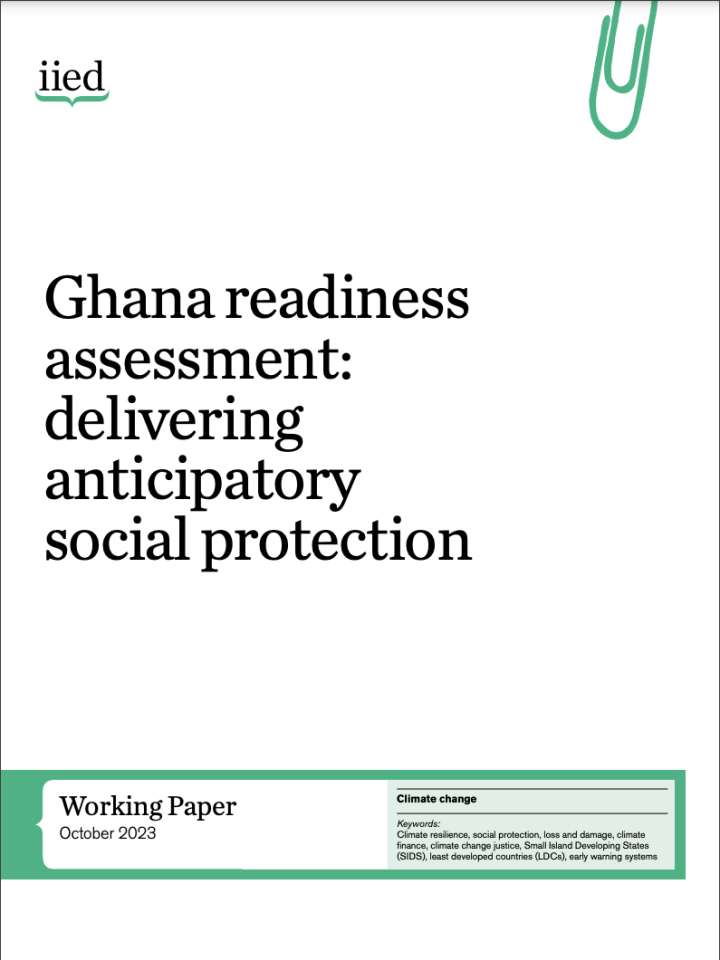Ghana readiness assessment: delivering anticipatory social protection
This study uses the ASPIRE tool to evaluate the readiness and effectiveness of social protection systems in Ghana, identifying gaps and opportunities to improve anticipatory measures and climate resilience.
The analysis shows that Ghana's social protection system shows promise with comprehensive policies aimed at poverty reduction, food security, and social equity. Programmes like Livelihood Empowerment Against Poverty, the National Health Insurance Scheme, the Labour-Intensive Public Works program, and the Ghana School Feeding Program target various vulnerable groups, and include an emerging focus on climate resilience. However, the system grapples with challenges in effective implementation, limited coverage, and gaps in inter-agency coordination. Stakeholder engagement exists, but its effectiveness is questionable.
According to the study, the country scores moderately well, but it lags in disaster risk financing and fails to adequately link social protection with disaster management agencies. On the technology front, there is progress in the form of a national social registry, but climate-smart systems and early-warning mechanisms are absent. Existing institutional coordination is not fully active, pointing to the need for enhanced multi-stakeholder engagement and better resource allocation, especially at the grassroots level. Ghana requires more effective implementation, better financial commitments, and improved coordination across sectors to serve its most vulnerable populations adequately.
Explore further
